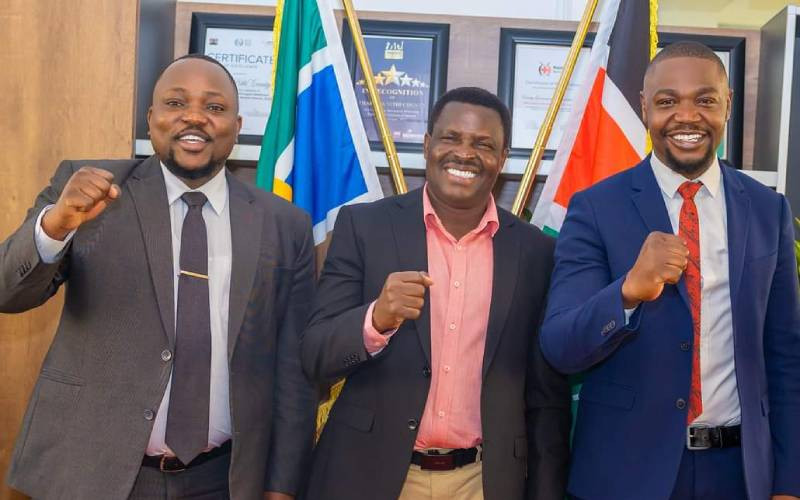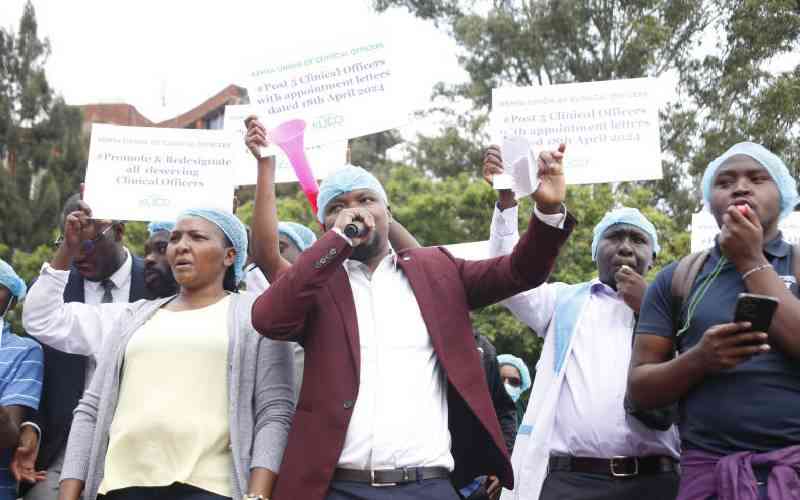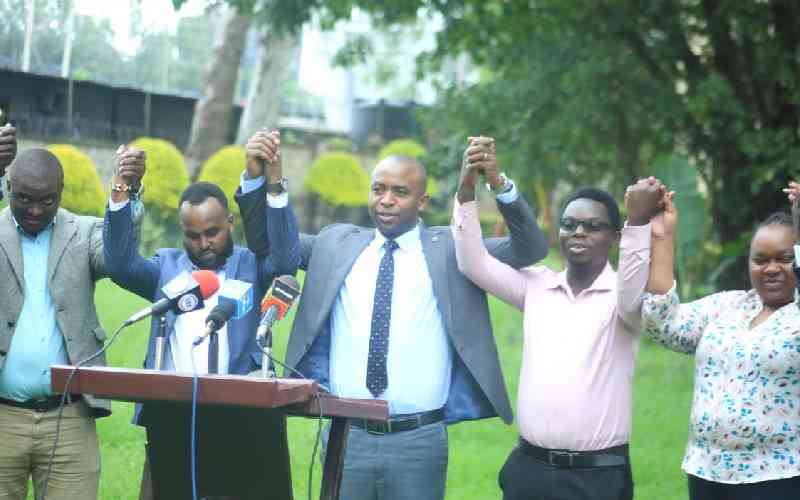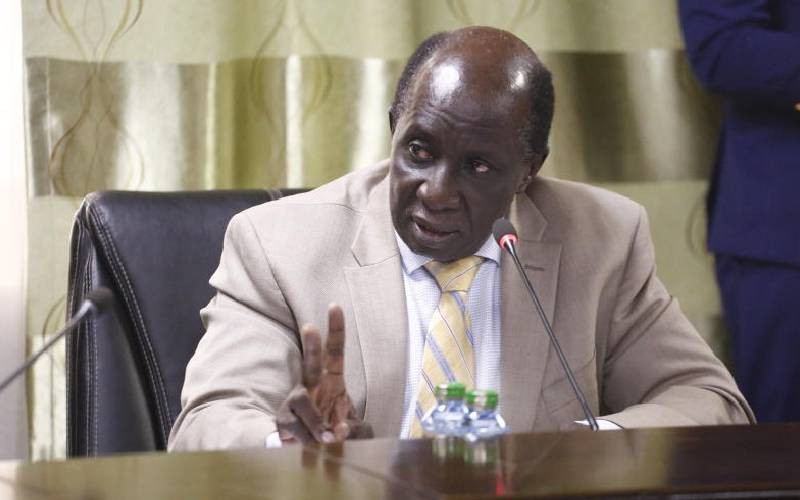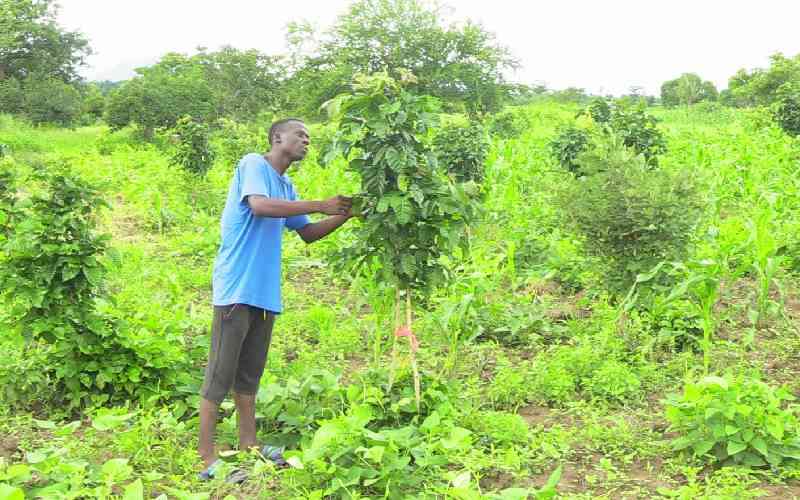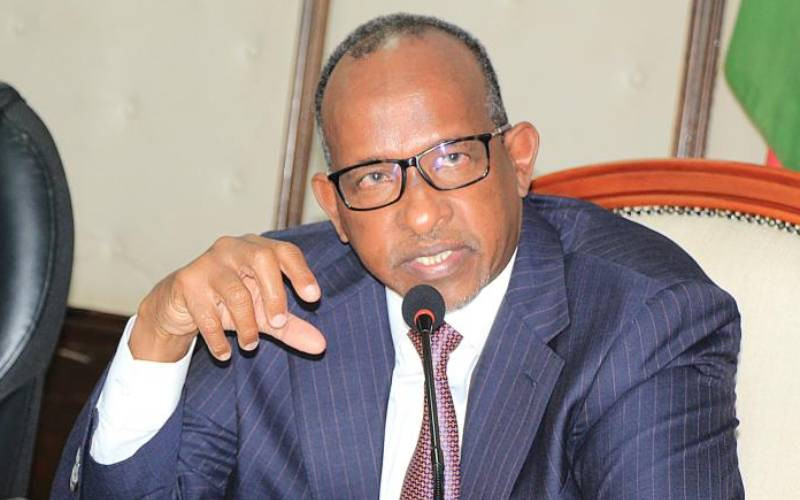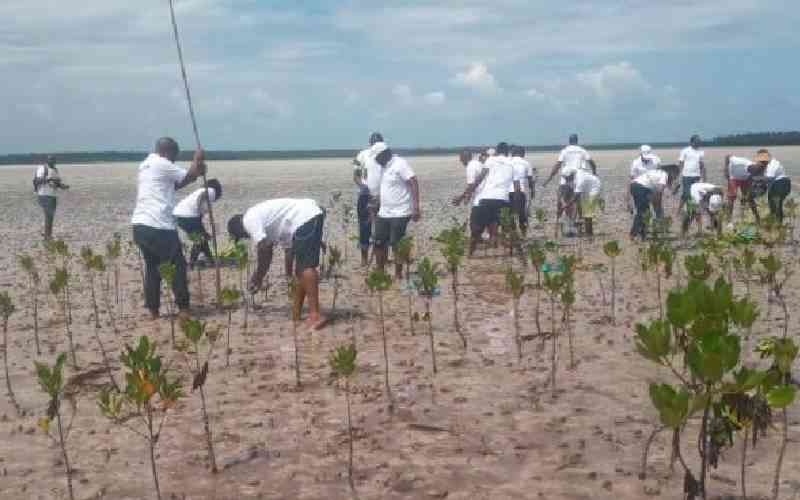
The first week of the UN Climate Change Conference (COP29) exposed a gap between the promises made during the Nairobi Africa Climate Summit and the current discourse.
Ahead of the global climate talks, it was expected that Africa’s approach would take precedence, after the leaders vowed to lead a unified call to action, through the Nairobi Declaration.
Africa’s decision to present the Nairobi Declaration at COP28 was seen as a crucial moment in the continent’s fight against climate change. However, as the second week begins, experts who spoke to ‘The Standard’ said the Nairobi Declaration is largely a ‘non-issue’ in the COP28 talks.
Power Shift Africa, Director Mohamed Adow, observed that apart from a single mention by Kenya, “We didn’t hear about it in the UN summit.” ‘The Standard’ has established that the African group of negotiators has agreed to adopt their common position as the basis of their engagement at the ongoing discussions in Dubai.
The position touches on many issues impacting the continent and is being led by Zambia. The development comes even as Kenya’s Special Envoy on Climate Change, Ali Mohamed, speaking at a plenary, insisted that the Nairobi Declaration signals a push for innovative financial solutions to address the escalating climate emergency.
The envoy underscored the inadequacy of current international climate financing mechanisms, citing the Global Climate Fund (GCF) with 12 billion dollars over four years as insufficient for the developmental needs of over 130 countries.
Ali urged a shift towards innovative financing methods, saying, “Africa is presenting and we are ready to lead on these matters of financial reform.”
- Experts seek inclusion of youths, children in climate action
- Fossil fuels and 'emissions by billionaires' drive climate crisis
- Forum confronts rising temperature data amid high global stakes
- Setback as Africa calls for trillions for mitigation efforts
Keep Reading
He pointed out the fiscal challenges resulting from the debt burden carried by many nations, saying that some are on the brink of default.
The Nairobi Declaration, as articulated by Ali, proposes reforms to the existing financial mechanisms that have been in operation for the past eight years, adapting to new realities. The common position, as Ali elaborated, calls for examining new ways of raising financing, including taxing financial transactions.
“For example, the biggest financial transactions … is it possible for us to look at ways of taxing financial transactions?” He posed. Furthermore, he suggested taxing aviation and Maritime, considering the substantial profits made by the sector.
However, Pan Africa Senior Advocacy Advisor at Christian Aid, Joab Okanda, shed light on the disparities between the Nairobi Declaration and actions at COP28.
Reflecting on the Nairobi Declaration, Okanda questioned the effectiveness of the initiatives launched, such as the tax task force on financing climate action. He highlighted concerns over whether these initiatives aligned with the Africa group’s objectives, specifically their desire for a UN tax convention on international tax preparation.
He emphasised the need to scrutinise proposals like maritime tax, considering Africa’s status as a net importer. He urged for a careful examination of the impact on inflation and the overall implications for the continent. “Africa is a continent that imports. we need to look at these things carefully,” he said.
“The Nairobi African climate summit was an opportunity, but it was also a missed opportunity for the continent to come together. We have not seen it trickle down at COP28, at this summit each country in Africa is forging its path,” said Kenda.
For instance, Hage Geingob, President of Namibia, cited the realisation that his country needed to independently determine the actions to combat the climate crisis.
“We are determined to find ways to combat impacts of climate change as a country in our ways,” Geingob said. When questioned about the progress in COP28 regarding the Africa position, Okanda remained skeptical.
He pointed out the endemic lack of trust between the global north and south, which has been hindering past commitments and pledges from being fulfilled.
“Africa wanted to use the African climate summit to redefine its engagement in the global climate negotiations. However, we haven’t seen that language spoken during the World Leaders Summit reflected in the text being negotiated,” Okanda said.
He raised concern about the hard-hitting language not being translated into the negotiations, with the global north seemingly giving the global south a hard time.
Okanda expressed concern over the bracketed text in Nairobi Declaration and informal formats that don’t align with the energy and initiatives discussed at the leadership level.
In a surprising turn of events countries launched a tax task force to explore innovative ways to finance climate action. Okanda was skeptical about the task force, questioning whether it might divert attention from the Africa group’s original objective at the UN.
Fadhel Kaboub, Associate Professor of Economics from Tunisia, noted that Africa Climate Summit was a missed opportunity for greater unity among countries.
Despite the presence of few leaders, Kaboub, observed that the summit’s influence hadn’t translated effectively into the negotiation text for COP28.
“We haven’t seen it much trickled down into a negotiation text,” he lamented, criticising the lack of substantial progress apart from discussions on capital markets. As the first week of COP28 unfolded, experts remained cautious about the prospect of improved inclusion in the final decisions and the global stock-take.
He stressed that Africa’s negotiating position was deeply rooted in the outcomes of the African Climate Summit. The continent, having arrived at COP28 with diminished trust in the global north, aimed to redefine its engagement in climate negotiations and address the challenges facing its people.
The sentiments by various parties underscored a growing concern that past commitments and pledges from the global north had not been met, leaving many in the global south disillusioned.
Kaboub argued that the global north, possessing the capacity and capability to transition, should take a more proactive role in addressing climate challenges.
 The Standard Group Plc is a multi-media organization with investments in media platforms spanning newspaper print
operations, television, radio broadcasting, digital and online services. The Standard Group is recognized as a
leading multi-media house in Kenya with a key influence in matters of national and international interest.
The Standard Group Plc is a multi-media organization with investments in media platforms spanning newspaper print
operations, television, radio broadcasting, digital and online services. The Standard Group is recognized as a
leading multi-media house in Kenya with a key influence in matters of national and international interest.

